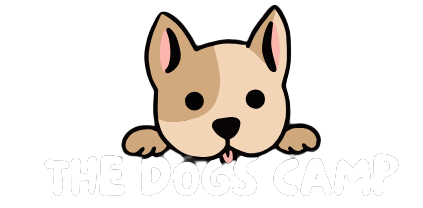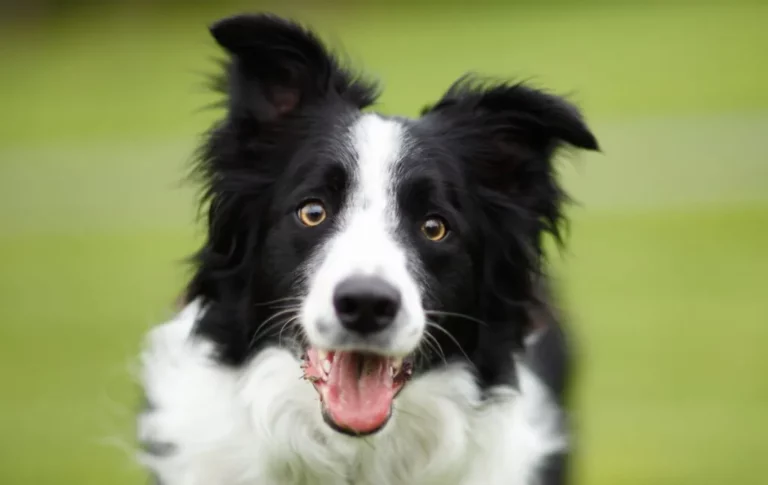Border Collie Dog Breed
The Border Collie is a standout dog breed known for its agility, intelligence, and dedication. These dogs were first developed along the borders of Scotland and England. They’re famous for their ability to herd sheep with just a look and a few moves. Physical traits like sharp eyes, an athletic physique, and a versatile coat make them easy to spot.
But their mental sharpness, problem-solving skills, and love for learning make them shine. However, they’re not the easiest dogs to handle due to their intense energy and focus. People considering getting a Border Collie should consider the time and effort needed to care for them.
This breed may be more suitable for those with experience in herding or dog agility rather than as a casual family pet.
Key Takeaways
- Border Collies excel in agility and intelligence.
- Originated on the Scotland-England border, adept at herding.
- Require significant time and effort for proper care.
Quick Facts
Border Collies, a medium-sized breed within the Herding Group, are renowned for their longevity, typically 12 to 15 years, and require considerable exercise and mental engagement to maintain their well-being. Males generally stand 19-22 inches and weigh 30-55 pounds, while females measure 18-21 inches and maintain a similar weight range.
This breed exhibits a profound capacity for physical activity, demanding high energy expenditure and complex cognitive challenges to stave off boredom and potential behavioral issues. Originating from the British Isles during the 18th century, their herding instincts were honed for efficiency in livestock management, descending from notable ancestors such as Old Hemp and Wiston Cap.
These agile canines demonstrate exceptional intelligence and are predisposed to rapid learning, necessitating early socialization and consistent obedience training to channel their protective nature and innate herding tendencies.
Border Collie Dog Breed Pictures
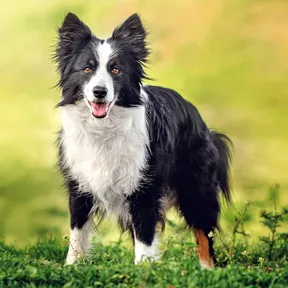
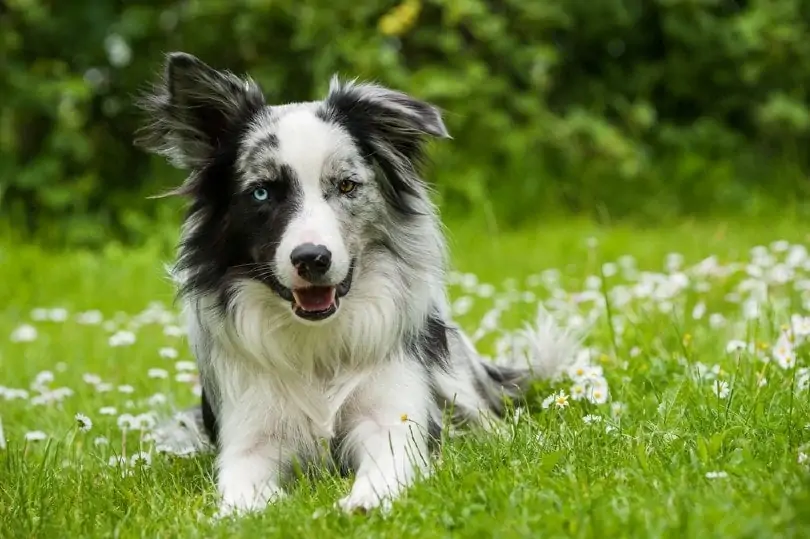
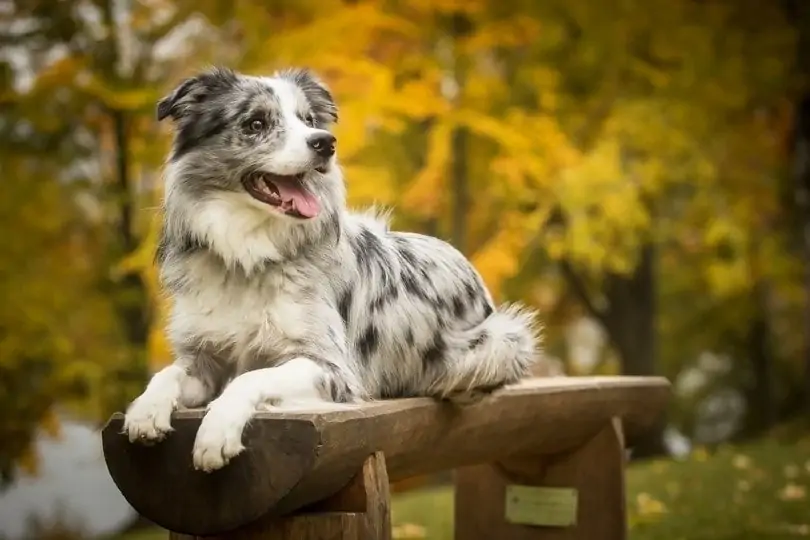
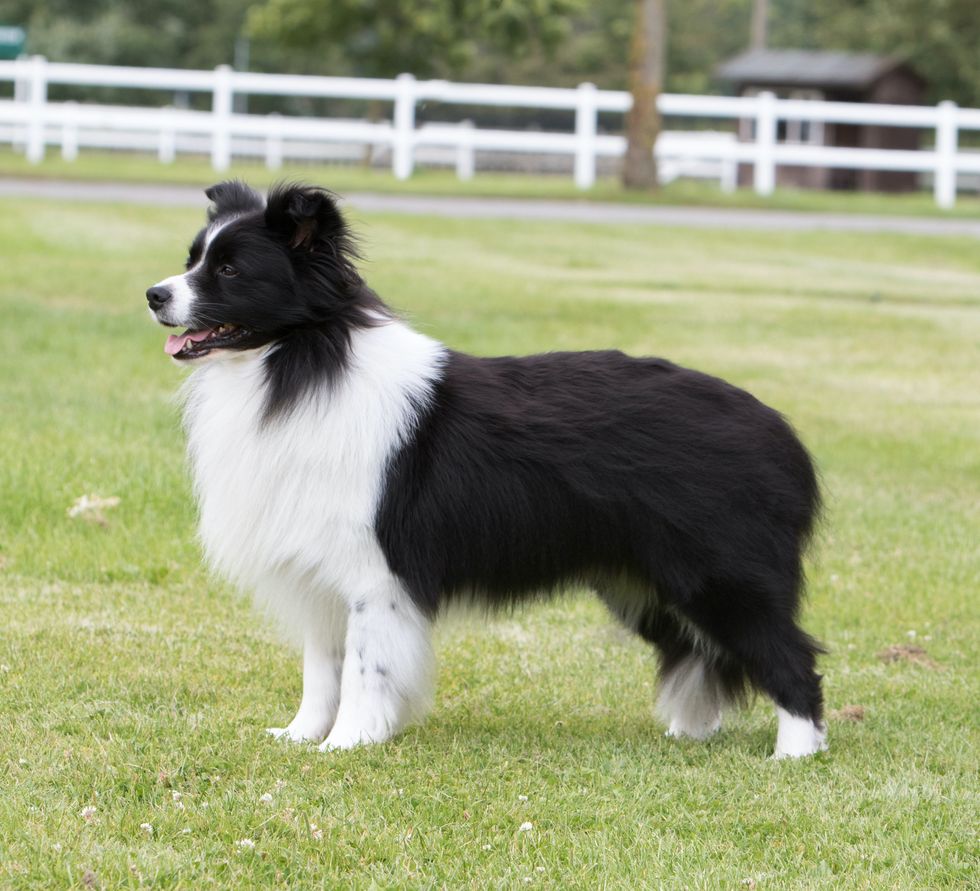
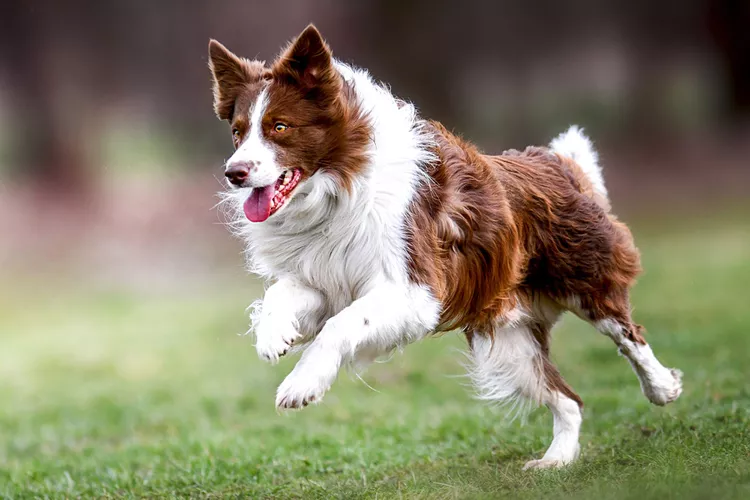
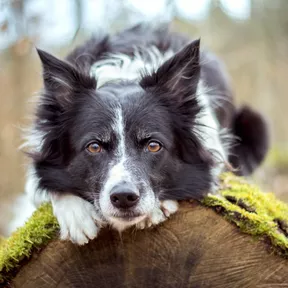
Overview
Why are border collies regarded as one of the most intelligent and versatile dog breeds?
These medium-sized herding dogs are renowned for their exceptional cognitive capabilities and agility, traits essential for their traditional role in livestock management. With a robust lifespan of 12-15 years, border collies are highly energetic dogs that thrive on vigorous exercise and complex mental challenges.
Their aptitude for canine sports is often enhanced through structured programs like the Canine Good Citizen, which polishes their behavioral and social skills. To maintain their well-being, a regime of balanced nutrition, periodic veterinary care, and attention to preventative measures such as tick removal is imperative.
Descending from a lineage that includes adept herders like Old Hemp and Wiston Cap, the Border Collie’s history is deeply intertwined with its herding prowess.
Border Collie Personality
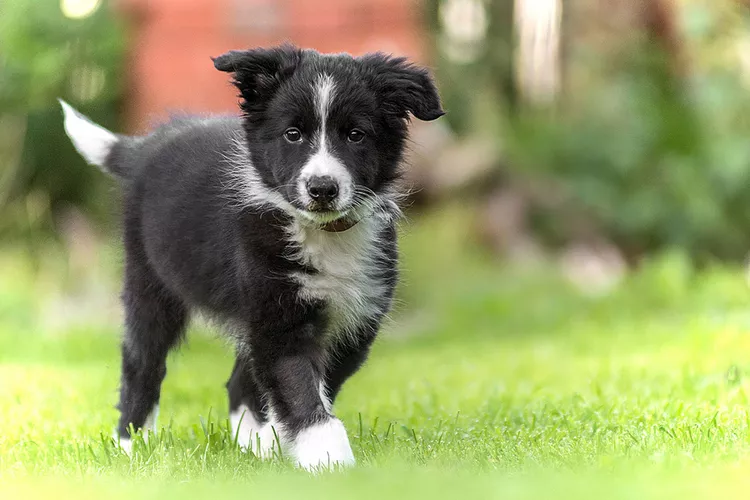
Reflecting on the Border Collie’s historical role in livestock management, their key traits are a product of selective breeding and a testament to their adaptability and intelligence as a breed. As brilliant dogs, they learn rapidly, assimilating new commands with ease. Their energy levels demand substantial physical and mental exercise to prevent boredom-induced destructive behavior. Historically, herding dogs, their innate herding instinct, and strong work ethic necessitate a sense of purpose.
| Trait | Description | Relevance to Herding |
|---|---|---|
| Intelligence | Quick learners, adept at training and tricks. | Essential for complex tasks and obedience. |
| Energy | High energy levels require considerable exercise. | Vital for endurance in fieldwork. |
| Protective | Guard family and territory reserved with strangers. | Guard family and territory reserved with strangers. |
| Work Ethic | Strong desire to work and have a purpose reflective of their heritage. | Fundamental for consistent herding performance. |
Border Collie History
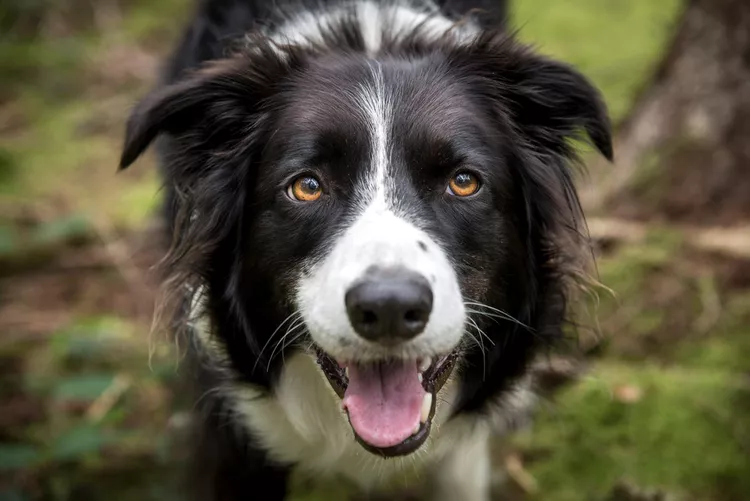
The Border Collie’s roots can be traced to the British Isles, where shepherds bred them for outstanding herding abilities. Old Hemp, a notable dog in the breed’s history, influenced the Border Collie’s work ethic and behavior traits. These dogs later gained worldwide popularity thanks to their skills in managing livestock and their versatility in different jobs.
- Ancestral Lineage: Old Hemp played a pivotal role in shaping the Border Collie breed.
- Global Expansion: The breed spread from the British Isles to other parts of the world, such as New Zealand.
- Breed Formation: The Border Collie’s traits were officially defined and standardized in the 19th century.
- Working Roles: Border Collies are employed in various tasks, including herding, law enforcement, and search operations.
- Breed Recognition: Canine organizations recognized the breed, confirming its unique status.
The Border Collie breed is strongly connected to the pastoral regions of the UK, where they were bred for their herding prowess. Old Hemp is a dog that has significantly influenced the breed, impacting their work skills and disposition. The breed’s expansion across the globe and its official acknowledgment was due to its effectiveness in managing animals and ability to adapt to various jobs.
- Ancestral Lineage: Old Hemp is a central figure in the history of the Border Collie.
- Global Expansion: The breed was transported from the UK to multiple continents, with a significant presence in New Zealand.
- Breed Formation: The 19th century formally established the breed’s features and standards.
- Working Roles: Border Collies have been utilized in herding, police assistance, and rescue missions.
- Breed Recognition: Dog registries and clubs have formally recognized the breed, establishing its distinct identity.
Ancestral Lineage
Originating from the British Isles, the Border Collie breed evolved from local collies, tracing its roots back to Old Hemp, a dog born in 1893 that significantly impacted the breed’s formation. Old Hemp was known for his intelligence and herding skills and is seen as an early foundation stone of the breed, embodying the characteristics for which Border Collies are known.
This breed was refined in the region along the Scottish border, where it was shaped into a top sheep-herding dog, utilizing its remarkable agility, endurance, and eagerness to learn.
The genetic contribution of Old Hemp, combined with other influential dogs like Wiston Cap, has been carefully preserved, leading to the creation of the skilled and adaptable working dogs known around the world today. These dogs excel in various tasks thanks to their versatility and ability to learn quickly; qualities intentionally bred into them over generations.
Global Expansion
Border Collies, hailing the British Isles, have spread worldwide, beginning with their introduction to places like New Zealand. They became key players in shaping local herding techniques and dog breeds worldwide. Their name hints at their origins near the Anglo-Scottis. They can trace their lineage to a notable ancestor, Old Hemp of England.
It was the year 1858 when Border Collies first set paw in New Zealand. They left a lasting mark on the local sheepdog competitions and helped create the New Zealand Heading Dog.
As the reputation of the Border Collie for its adaptability grew, groups like the International Sheep Dog Society were crucial in upholding the breed’s quality in England and Scotland. This recognition led to the breed spreading to the United States, where it took on diverse roles. Border Collies have been employed in various fields in the US, including police work and search and rescue missions.
Border Collies have gone from British origins to international acclaim. Their influence on herding and rescue, as well as their work, showcases their versatility and intelligence.
Breed Formation
Exploring the history and evolution of the Border Collie, we discover a breed that originated in the rural areas of the British Isles. Shepherds there bred these dogs for their smartness, quickness, and ability to herd animals. The Border Collie began to stand out in the late 1800s, thanks to critical ancestors like Old Hemp and Wiston Cap, who were instrumental in defining the breed’s characteristics. The breed was honed not for its looks but for its working capabilities, which made it exceptional at herding rather than winning beauty contests.
The Border Collie’s lineage was enriched when brought to New Zealand, leading to the development of the New Zealand Heading Dog. The American Kennel Club gave the breed official recognition in 1995. Since then, there has been a surge in registrations, indicating the Border Collie’s growing popularity and enduring role in herding and dog sports.
Border Collie Appearance
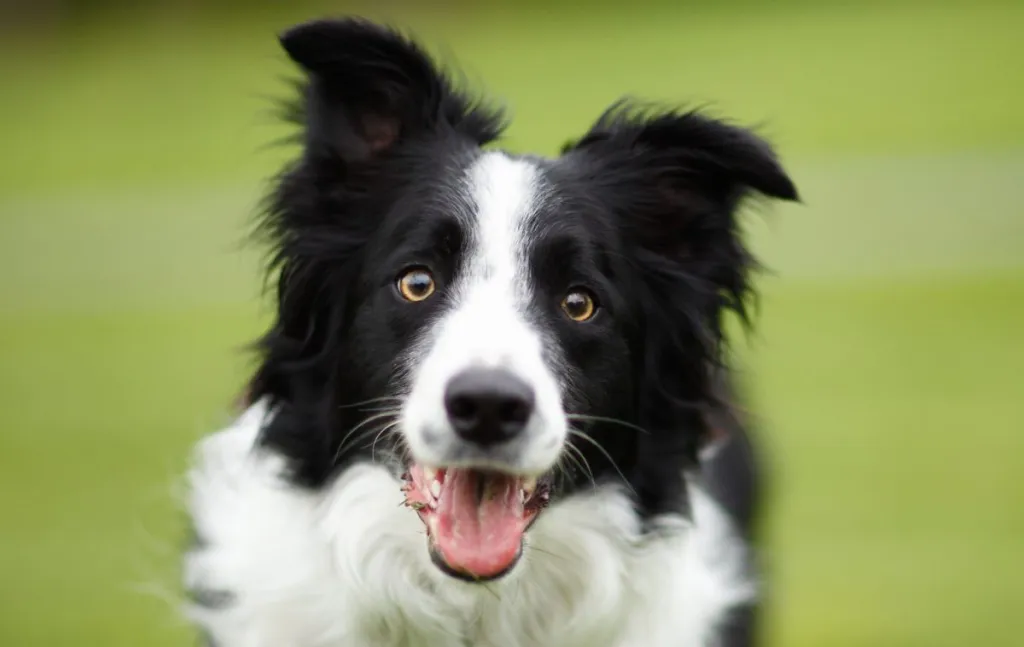
Border Collies showcase a variety of physical dimensions that highlight their skills as working dogs and pets. Their average size, weight, and height are crucial for their agility and endurance. A closer look at these aspects, their body shape, coat types, and unique tail and ear features, offers insights into their practical use and visual charm.
- Size Range
- Weight and Height
- Features
- Variety in Coat Length
- Description of Tails and Ears
When talking about the size range of Border Collies, it’s not just about numbers. Their size makes them nimble yet strong, ideal for herding and active families. For their weight and height, these dogs are generally medium-sized, which contributes to their versatile physical abilities. Their body shape is athletic built for speed and intelligent movement, so they excel in dog sports. The variety in coat length, from short to rough, helps them adapt to various climates and is also part of their charm. Lastly, their tails and ears are not just cute; they’re expressive and help convey their attentive nature.
In crafting this overview, I’ve avoided industry jargon and aimed for a friendly tone to keep it engaging and informative. I hope to paint a clear picture of the Border Collie’s standout traits by emphasizing their dynamic qualities and avoiding overused expressions.
Average Size Range
Border Collies are a medium-sized dog breed, typically standing 18-22 inches tall and weighing 30-45 pounds. Their size makes them a perfect example of medium-sized dogs, combining strength with agility. These dogs have been bred for herding, which requires quick movement and the ability to cope with the physical work involved in managing livestock.
Knowing a Border Collie’s size is vital for those looking to adopt. It determines how well the dog will fit into a home and if it matches the owner’s lifestyle, considering the space available and the necessary activity level to keep the dog healthy and happy.
Weight and Height
Understanding the typical size of medium-sized dog breeds like the Border Collie is crucial. It helps us appreciate the breed’s physical characteristics better.
Border Collies usually stand about 18-22 inches tall at the shoulder. Male Border Collies often fall within the 19-22 inch range, while females tend to be slightly shorter, ranging from 18-21 inches. Regarding weight, a healthy Border Collie should weigh between 30-45 pounds, though some males may weigh as much as 55 pounds.
These dogs have a lifespan of around 12-15 years. To reach this age, they need plenty of exercise and mental challenges to keep them healthy and prevent weight gain.
The coat of a Border Collie is of moderate length and varies in texture, but it doesn’t add much to their size. This is important as it allows them to remain nimble, essential for their traditional role in herding livestock.
Body Shape Characteristics
The Border Collie boasts an athletic build of medium size, with a body slightly longer than its height, supporting its agility and strength for herding. This dog has a sturdy body designed for endurance and speed, which is crucial for herding livestock.
Its double coat comes in two types—smooth or rough—and protects against different weather. The Border Collie’s various colors and patterns give it a unique look.
Males stand at 19-22 inches and females at 18-21 inches at the shoulder, with a weight between 30-55 pounds, showing a mix of power and elegance.
The physical traits of the Border Collie showcase its adaptability and skill in dog sports and other challenging tasks.
Coat Length Varieties
Border Collies are known for their medium-length double coats, which come in a smooth or rough texture. These coats are not just for looks; they provide vital protection against harsh weather and showcase the breed’s varied genetic background.
Today’s Border Collies have coats that serve both practical purposes and meet the aesthetic tastes of owners. A smooth coat is typically shorter and more accessible, whereas a rough coat is more extended, sometimes even curly, and needs more upkeep.
It’s important to note that these variations in coat type do not affect the likelihood of genetic disorders like hip dysplasia or collie eye anomaly. Despite the kind of coat a Border Collie has, they all have a risk for specific genetic health issues.
It’s up to breeders and dog owners to be aware of these issues to maintain the health of their pets.
Tail and Ear Description
Coat length in Border Collies doesn’t affect their health, but the size and shape of their tails and ears are essential for communication.
These dogs have medium-length tails that signal their mood and intentions. When they’re calm or thinking, their tails stay low. During excitement or activity, they lift their tails high. This is especially useful when they’re herding and rely on body language to work.
Their ears are medium-sized, stand apart, and are usually upright, showing they’re paying attention. Even if the tips of their ears fold slightly, it doesn’t lessen their ability to be alert.
The way Border Collies use their ears and tails to communicate is a big part of their charm and intelligence. These features show how engaged and emotionally connected they are with their environment.
Temperament Traits
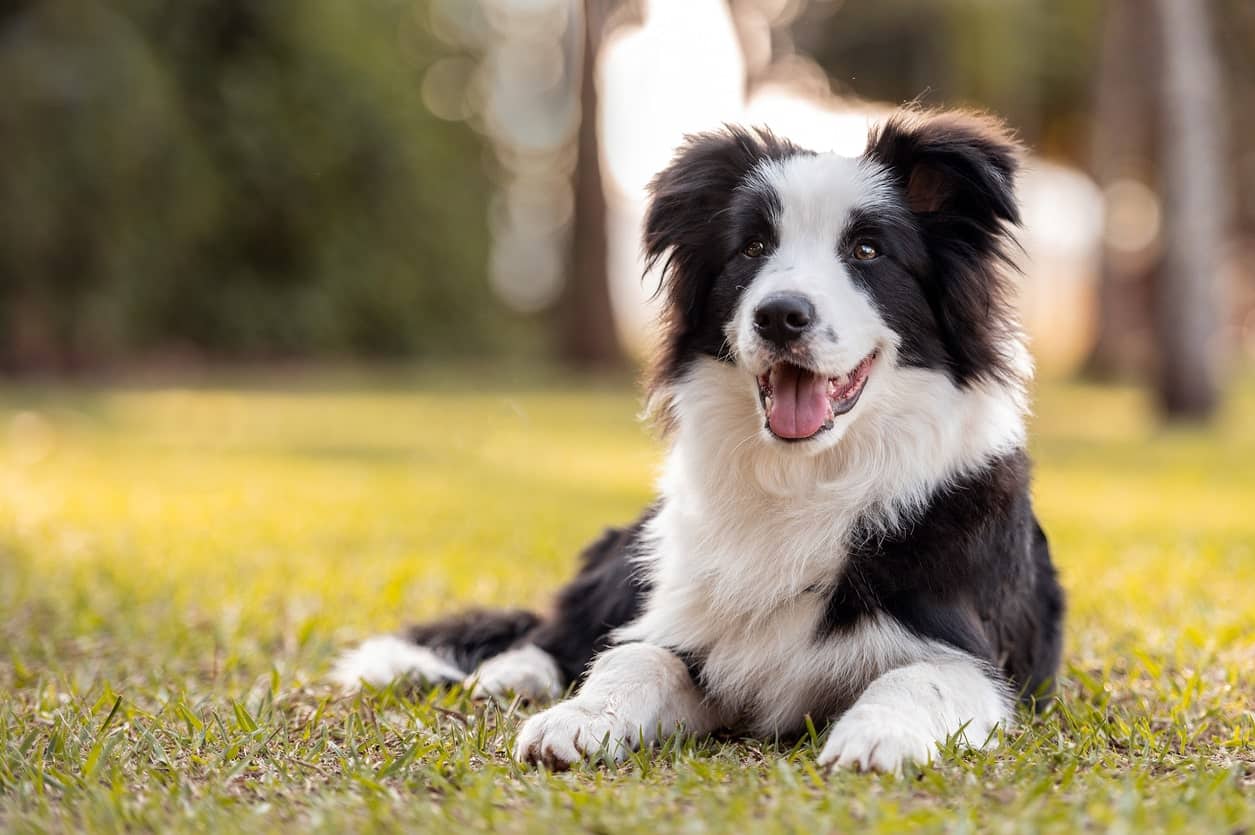
Border Collies are known for their complex behavioral traits stemming from their herding dogs’ history. This influences how they interact with both people and animals. They are knowledgeable and need mental stimuli from their herding dogs’ history of natural energy.
This breed’s herding instinct can sometimes cause them to be brilliantmals or even people. Giving them a lot of daily exercise is essential to prevent them from becoming restless or destructive. Border Collies are intelligent dogs that can learn a variety of tasks quickly.
Socializing them from a young age is essential to avoid shyness around new people. Training is necessary to control their strong instinct to chase, ensuring they have a healthy outlet for this behavior.
Border Collies thrive with the right balance of activity and mental challenges. Owners must keep their dogs engaged and content for a peaceful life together.
Herding Instincts Display
Border Collies are known for keeping skills. They can control and guide livestock naturally, thanks to their behavioral heritage. Working dogs use techniques like heel-nipping, circling, and maintaining a sharp eye on their flock. This behavior is not limited to farm work; it is seen at home with moving objects or heel-nipping members.
These dogs have lots of energy and need activities that challenge their minds. Activities that simulate herding are crucial for their happiness. Sheepdog competitions are a great place to see how precise Border Collies can be. Proper training is critical for positively using their instincts and keeping peace at home.
Energy Levels Impact
Border Collies are known for their high energy levels, significantly shaping their behavior. These dogs must engage in regular physical exercise and mental tasks to stay happy and healthy. Being naturally active, Border Collies need psychological and physical challenges to satisfy its drive for activity. They’re at their best when they have a job, especially if it involves their instinct to herd or solve puzzles.
A lack of sufficient exercise can lead to boredom in Border Collies, resulting in unwanted behaviors. To prevent this, owners must provide structured activities that positively direct their dog’s energy. Activities such as training sessions and dog sports not only keep them busy but also help to keep their minds sharp. These activities meet their overall needs for energy management.
Intelligence and Training
Border Collies are known for their sharp minds and do well in training due to their natural ability to solve problems and learn new commands quickly. These dogs are brilliant and respond well to advanced obedience training and activities using their herding skills. They grasp things fast and can understand a wide range of human signals with impressive accuracy.
Border Collies need activities that make them think to stay happy and healthy mentally. They need exciting tasks and games that test their brains. Positive training methods, such as clicker training and rewarding good behavior, work well because of their smarts and willingness to learn. Keeping up with a regular training schedule and giving them meaningful jobs, such as agility or herding competitions, is crucial to keep them from getting bored and meet their mental exercise needs.
Socialization Importance
Socialization is crucial for a Border Collie’s growth, as it helps them interact well with people and other animals and prevents problems like aggression or fear. It’s a vital part of their training, teaching them good behavior and helping them become a balanced dog.
Introducing them early to different places and things helps them adapt and reduce nervous behaviors like too much barking or howling. It’s essential for managing their natural herding behavior so they get along with everyone, including kids and other pets.
Socializing also helps prevent them from being too shy or distant and builds their confidence. A Border Collie that’s been well-socialized is more open to activities like dog sports and being out in public, which keeps their mind active and supports their happiness.
Prey Drive Management
Building upon the foundation of a well-socialized Border Collie, it is equally imperative to address their innate prey drive, which necessitates careful management to ensure their impulses are directed appropriately.
Prey drive management is critical, considering the breed’s herding solid instincts and propensity for chasing. Initiating dog training during the early developmental stages is essential to channel this energy into acceptable behaviors and avert the potential chasing of other animals.
Providing ample mental and physical stimulation is a strategic approach to managing their vigorous energy and averting boredom-related behaviors. Furthermore, controlled environments and supervised play are advisable to mitigate unwarranted hunting tendencies.
Positive reinforcement and redirection techniques are efficacious in transforming prey drive into focused engagement with interactive toys or structured obedience training.
Wellness and Longevity
Border Collies are celebrated for their energy and smarts. However, a comprehensive plan is needed to keep them healthy and extend their life expectancy. The duration of a Border Collie’s life can depend on their genes, their living conditions, and the care they receive. For a long and healthy life, tackling prevalent health issues and supporting their overall wellness is essential.
- Life Span Determinants: Genes, the care they get, and their living conditions.
- Health Issues to Watch: Watch out for hip dysplasia, epilepsy, and collie eye anomaly in Border Collies.
- Promoting health Over the Years: Give them exercise that fits their stage in life, proper nutrition, and routine health care.
- Routine Health Care: Keep up with their shots, protect them from parasites, and maintain their dental health.
- Keeping Their Minds Sharp: Engage them with advanced training, dog sports, and interactive games to keep their minds active.
To ensure Border Collies live their best life, it’s crucial to understand the breed’s specific needs. Regular exercise tailored to their age helps maintain their physical health, while proper nutrition supports their energy levels. Staying on top of vaccinations and keeping them free from parasites are essential preventive measures. Don’t forget about their teeth – regular dental cleanings are a must.
For their mental health, challenge their intellect with advanced training. Participate in dog sports together or enjoy interactive playtime. These activities strengthen your bond and keep your Border Collie’s mind sharp.
Life Span Factors
Understanding the various factors that influence the lifespan of Border Collies is essential for guardians and breeders committed to optimizing the wellness and longevity of these intelligent and active dogs. Regular exercise and mental stimulation fortify the immune system and mitigate health problems, while a balanced diet sustains overall health.
Preventative care through routine veterinary check-ups, including screenings recommended by the Orthopedic Foundation for Animals, is pivotal for early detection and management of breed-specific ailments such as Collie Eye Anomaly and hip dysplasia. Furthermore, mental and social enrichment activities enhance cognitive function and emotional health, contributing to a robust, fulfilled life.
Vigilant attention to these factors can significantly influence the lifespan and quality of life for Border Collies.
Common Health Concerns
When caring for Border Collies, it’s vital to focus on their lifespan and the health problems they might face. These dogs are prone to hip dysplasia, a joint problem that can drastically affect their ability to move and enjoy life. They can also inherit a collie eye anomaly, which may impair their sight. Regular vet check-ups are essential to catch conditions such as arthritis and trapped neutrophil syndrome early on. These energetic and intelligent dogs can lead longer, healthier lives.
Border Collie Collapse is a specific concern for this breed. It can cause disorientation and weakness after exercise and is tricky to diagnose. This is why watching how much exercise these dogs get is essential. Being proactive with your dog’s health by scheduling consistent vet visits can help manage these issues and keep your Border Collie happy and active for years.
Enhancing Lifelong Vitality
To keep Border Collies healthy and active throughout their lives, they need a routine that includes regular exercise, mental stimulation, and thorough healthcare. They require a well-rounded program that matches their energy and smarts.
Daily activities should challenge their bodies and minds, especially since they excel in dog sports and obedience. The right food is vital, providing the energy they need. Regular vet visits help catch and treat health problems early.
Interacting with people and other dogs suits their mental health and helps prevent loneliness, which is especially important for sensitive Border Collies. This can lead to a happier and longer life. Teaching them how to behave and socialize properly is also crucial for their well-being.
Essential Maintenance Needs
Border Collies are a breed that necessitates comprehensive maintenance strategies to safeguard their well-being and enhance their quality of life. The breed’s distinctive physical and mental requirements demand a systematic approach to their care, encompassing various activities and practices.
To ensure optimal health and happiness for a Border Collie, the following key points should be meticulously attended to:
- Grooming and Coat Care
- Regular Health Check-ups
- Diet and Nutrition
- Exercise and Activity
- Training and Socialization
Grooming and Coat Care
Regular grooming is essential for a Border Collie’s health and appearance. Brushing their coats weekly is necessary to avoid matting and control shedding. These medium-sized, energetic dogs have a double-layered coat that needs consistent care to keep them smooth and clean. Use a slicker brush and a comb, especially when they’re shedding more in certain seasons, to remove dead hair and prevent mats.
Limit baths to when necessary and use a shampoo for dogs to maintain their coat’s oils and skin health. Cleaning their ears regularly is essential to prevent infections, which helps keep them healthy. Trimming their nails every one to two months is necessary to avoid overgrowth. Long nails can cause pain and affect how they walk, which might worsen joint issues like dysplasia or eye conditions like collie eye anomaly.
Regular Health Check-ups
Taking care of your Border Collie’s health means booking vet visits regularly. These check-ups are vital to catching health problems early, like the breed-specific Collie eye anomaly and hip dysplasia. The Orthopedic Foundation for Animals pays special attention to these.
At each visit, your dog will get a complete check-up. This includes keeping up with their shots, looking at their dental health, managing pests, and keeping an eye on their weight to keep them in top shape.
These visits are more than just health checks; they’re a chance to talk about your dog’s behavior, diet, and any changes in their lifestyle. Regular vet visits are crucial because they help spot and treat health issues early.
This keeps your Border Collie healthy and full of life.
Diet and Nutrition
For a Border Collie, a breed known for their endless energy, a nutritious diet is vital to keeping them healthy. These dogs need a mix of the right foods to stay fit for their active lives. It’s essential to include plenty of high-quality proteins to help their muscles recover after running and playing. Healthy fats are just as crucial since they provide the energy a Border Collie needs and keep their fur shiny and smooth.
When feeding this breed, watch their portions and calories closely. Border Collies love to eat but can quickly gain extra weight if their diet isn’t managed correctly. Always give them plenty of fresh water, especially after playing hard or if the weather is hot.
To keep your dog in top shape, schedule regular vet check-ups. A vet can create a diet plan that’s perfect for your pet and check for any food allergies or sensitivities they might have.
Exercise and Activity
Border Collies are energetic and bright dogs that need a lot of exercise and mental stimulation. A balanced program of intense physical activity and brain games is essential for their health and happiness.
They thrive in agility, herding, and obedience, which use their energy and smarts. Taking your Border Collie for long runs or playing interactive games is a great way to use their energy.
Tailoring their exercise routine to match their energy level and strength is critical. This helps prevent destructive behaviors from boredom and keeps them healthy overall.
Training and Socialization
To train a Border Collie effectively, you must start early and focus on their intelligence and energy. Positive reinforcement in obedience training helps direct their natural herding instincts and prevents behavior problems. Training like this allows the dog to understand what behaviors are expected at home and in other settings.
Socialization is also crucial and should start when the dog is young. It helps them learn how to behave around other family members, animals, and in different places. This allows the Border Collie to become a well-rounded pet. Giving them mental stimulation through toys and puzzles helps keep their brains active and stops them from getting into trouble out of boredom.
Nutritional Requirements
Border Collies have complex nutritional requirements that need careful attention to keep them healthy and energetic. It’s crucial to tailor their diet to meet the general dietary guidelines and cater to unique needs stemming from health issues like allergies or different nutritional needs at various life stages. Properly managing their diet can prevent health issues and ensure they perform well physically.
For a Border Collie to thrive, a balanced diet is vital. This includes the right mix of proteins, carbohydrates, fats, vitamins, and minerals. If a dog has allergies, you might need to choose ingredients that won’t trigger a reaction. This could mean picking a particular dog food or preparing homemade meals with the guidance of a vet.
Dietary needs change from puppyhood to adulthood and into the senior years. Puppies require more calories and nutrients to support their growth, while older dogs may need fewer calories to prevent weight gain. Keeping your Border Collie at an ideal weight is vital, and this can be managed by controlling their food portions.
Hydration is just as important as food for active Border Collies. Their water intake should reflect their level of activity. Active dogs need more water to stay hydrated, especially after exercise or during hot weather.
Balanced Diet Essentials
A healthy diet is vital to a Border Collie’s well-being. These dogs need the right mix of proteins, carbs, fats, vitamins, and minerals for their complex dietary requirements. Animal proteins like chicken, beef, and fish are the building blocks for their muscles. These should be a staple in the diet of this energetic breed.
Fats are also essential in fish oil, especially omega-3 and omega-6 fatty acids. They keep the Border Collie’s skin and fur in good condition, necessary for their looks and defense against the elements.
Eating various fruits and vegetables and the right supplements is necessary for getting enough vitamins and minerals. This supports their metabolism and keeps their bones strong. Plus, drinking plenty of water is essential. It helps their digestion and overall health, crucial for Border Collies, beloved family pets.
Common Allergies Considerations
A balanced diet is crucial for a Border Collie’s health, but it’s also vital to cater to those with food allergies. These dogs need a diet that avoids triggering their allergies to stay healthy. The Orthopedic Foundation for Animals advises closely watching your dog when they try new foods. This is to catch any allergic reactions early.
An excellent hypoallergenic diet helps prevent allergies and keeps your dog nutritionally balanced. Watch for reactions to usual suspects like beef, dairy, wheat, and soy. If you think your dog has a food allergy, talk to your vet to determine what diet changes to make. Rotating your Border Collie’s protein sources and other ingredients may help prevent allergies and ensure they get all the necessary nutrients.
Nutrition for Border Collies with allergies requires attention and care. Please consult your vet for advice and consider a hypoallergenic diet to support their well-being.
Age-Related Dietary Changes
As Border Collies grow older, their dietary needs change. These changes are due to less activity and slower metabolism. Reducing calories to match their lower energy use is often a good idea.
Diets for older dogs should have more antioxidants and omega-3 fatty acids to help keep their joints healthy and their minds sharp. Regular vet visits are vital in updating the Border Collie’s diet as they age, which helps keep them healthy.
The Orthopedic Foundation for Animals offers insight into breed-specific dietary needs that may affect how you feed an older Border Collie.
